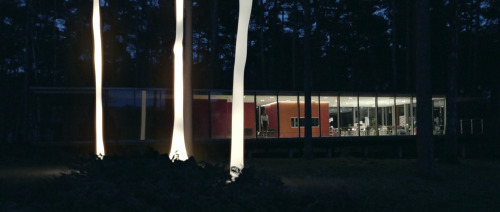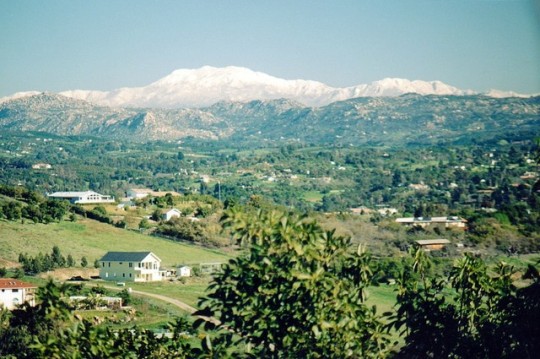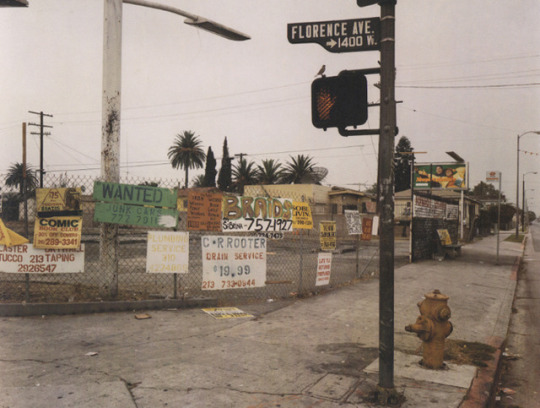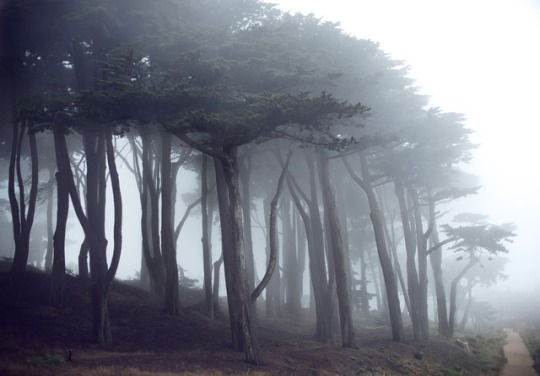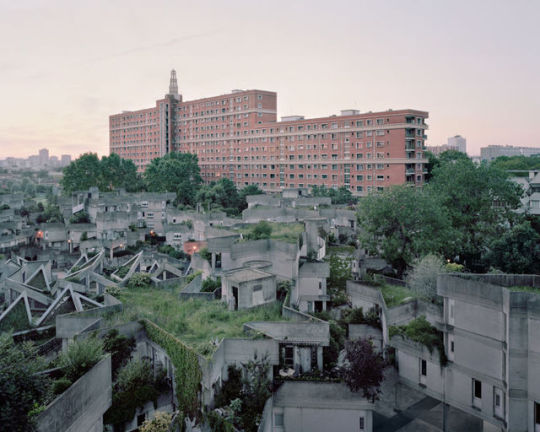Text
Flowers
morning
It was 4AM when I blossomed, surrounded by shoplifted mannequin body parts to keep me company. It was less of an obsession but a necessity, like oxygen. Mannequins, formed by the hands of men, a crude replica of countless millennia of evolution- were the perfect version of humanity, lacking the layers of complexity that humans were endlessly plastering over themselves. Hanging out of the glove compartment, stacked on top of each other on the passenger seat, it gave the illusion of human company under the dark blue haze of the early morning. I was forty-five and depressed.
The hymn of the overpass began seventy-eight minutes before sunrise, cutting the sultry June air like a crescendo of blunt knives slicing the serenity into increasingly smaller portions. It began with a long, dragged-out trembling, evolving into a dull pulsing similar to that of a beating heart, accompanied by the ever-increasing barrage of cars joining the performance. Fog stretched its sinuous fingers over the boulevards like a sheet thrown in the air, ebbing in and out like a continuation of the tide, as if trying to sweep the city away. Sometimes I pretended that I coul pull little strands of time out of the fog, so that one day I could weave a way out of my mess. I was going southbound on the Harbor Freeway, halfway through downtown, weaving my way through the canyon of synthetic monoliths, standing testament to civilization, as if signaling the advent of an age of permanence. I checked the side view mirror, watching a beat-up Camry come racing down the lane. For a split-second, I could see who was inside the car.
It was an everyday, dressed in the characteristic paper bag draped over the features, two slits carved out for visual aide. Being an everyday required a strict regimen of total singularity, where the most devoted symbolically gouged out their own eyes to eliminate the clout of judgement that was inflicting society. At first it seemed like a fad, soon to be washed away by the passage of time. Society was steadfast yet ever-changing, endlessly metamorphosing for the better or the worse. Yet it swooped down on the nation like an army of fish nets, gripping the idle in its fists while only the shrewd slipped through.
The first subtle promise of the day sat along the horizon, spitting specks of light on the dashboard. It was a time of transience, an awkward, misshapen time; labeless and lacking any particular definition. The air tightened, the equator had shifted northwards, the magnetic forces that so precariously held the planet together were dissolved, and for thirty seconds in the time between twilight and dawn, the silent time, the world was turned on its feet. Bags flew off of everydays, the Sun gazing upon their pasty skin for the first time in years. Third eyes briefly opened up in the wrinkled brows of the masses, expanding to fit neatly over the skull. The Southland was picked up on two sides and folded like a piece of paper. Children spilled out of the sewers, rows of bungalows closed in on each other, and the pipes of Los Angeles, sucking the lifeblood out of an arid valley two hundred miles away, spewed water into the streets. Everyone rolled out of their cars and tumbled under the First Street Bridge, and for ten seconds we stared at each other, extremely content, knowing that we were a heap of flesh, a thinking pile of flesh that was tied together by the strings of connection, that somehow, through countless past and future lives we found ourselves here, witnessing the simple spectacle of being in each other’s company.
Layers of sentiment fell upon us like a sensory overload, piled layer upon layer in different shades and combinations that no tongue could ever describe. The fact that we had all found ourselves in the river was something special, that we were building relationships through merely understanding the circumstances, that our identity was not our own, but made of the people around us. Being human was never easier, or more gratifying. This mantra swamped us, and in the silence that filled the morning air we blossomed.
I blossomed.
It was an odd sensation, to have a flower grow inside of me. The strings of connection, so firmly attached to each and every one of us- the beggars, the 1%, the murderers, the colorful, the privileged, the illegal- built a physical cobweb-like structure between us. It looped over the graceful curve of the bridge and spread out into Boyle Heights to the east and the freight depot to the west. As the structure grew in its perfect mess, the flowers too crawled out of the sterile blank space inside of us. They made a humming sound, not unlike that of a group of desperate bees, both eldritch and calming, as if confirming their presence. And in that paragon of time, when the forces in the universe at least pretended that they were in perfect balance, and what was that word I saw in the bookstore at Echo Park, the one built over the dead bodies- hygge, yes, the feeling of being safe, known, and that was it, the feeling of being nestled up between all of these people. People with beating hearts, with seeing eyes, who shed tears and felt pain, who were susceptible to the sting of merely a word but could live on this desolate planet for millions of years, and probably millions more. With our flowers we made a garden, the Garden of Eden, a paradise that lasted only a few seconds but held so much.
Light climbed up the sky like sand in an hourglass, and like all things the flowers wilted, the cobweb structure dissolved in the river, carried down to float with dead whales and plastic straws in the port, and the memory, the reality of these seconds would become vaguely distorted and rearranged so that the fog drifting over the city would rest in my head. The polluted, the freethinkers, the pious, the messiahs, the dispossessed, the damned all disappeared in a quivering mirage of the brain, for the eyes were of no use, they only relayed the images, and it could have all been the way I processed it, the way my brain fabricated an image. But the flowers lingered, their petals rotting in my heart.
afternoon
The surveillance video of the pileup played over and over again on the TV, highlighting the moment when we all fell into the river like a pack of lemmings. I sat in what I presumed was the emergency ward of some hospital- public, obviously, with the characteristic aseptic stench leaking off the walls. I had no insurance, and next to lay a hundred or so others, others who had been found at 4AM lolling around in the Los Angeles River, stuck under tires and bleeding profusely in a perfect circle. There was a freaky quality to it, and already people were attributing it to La Llorona, it was summer, and people needed a chill. There was a dryness in my mouth, as if I was holding a tadpole in my mouth and it grew into a frog, hopping out before I woke up.
The flowers. I stuck my finger deep into my throat, and it was as if I nudged a tender something down there, something that I hadn’t noticed before. My fingers traced the ridge of my spine, and out came a puff of fine dust. Pollen. It was like a photograph, as if time was grinding to a standstill until all you saw was one image, one that would define a whole period of time but time passes even if that’s all that dwells in your memory. It rose up and merged with the dust floating up and down, mingling and blending into one large farrago of particles, because in the end our head and our shit will come together and we’ll have a nice paste of everything laid down over us.
I didn’t have any severe injuries, just a few cuts and bruises, souvenirs of the morning. I started walking through the emergency room with a casual gait. I decided to leave the life that I had previously lived. Not that I particularly liked it. The highlight of the week was getting hungover on the weekends, and not with any other people, but by myself, sitting in my apartment covered in mildew, the only riparian habitat for miles.
I walked straight into the smog-ridden heat waiting quietly next to the entrance, ready to absorb me back into its grasps. Slowly but surely, I melted into the scene, being yet another character in the demented, asinine stage of Los Angeles, where at midnight tar pits opened up beneath the boulevards and swallowed up the stragglers, preserving their skeletons for millennia.
evening
I walked along the edge of the freeway, accompanied by a mass exodus of salarymen from downtown. The frenzied rush was not unlike salmon going upstream, each in his own fight, navigating their way over each other. It was terrifying, yet my helplessness to the deluge of cars was almost soothing, as I let their presence wash over me.
The traffic flow was so strong that it carried me with it, a swell pushing me into the shadow of Chavez Ravine and under the watchful fronds of rows of Washingtonia palms. Blood was coursing through the arteries of the city, and I was but a cell drifting on course, picked up by the sheer force of the movement. I missed my alcove of mannequin parts, but returning but claiming my truck would mean facing the hospital bills, after I blossomed I had been picked up and placed on another course, and there was no way back. It may have seemed like a horrible accident, but only to the naïve eyes of those who haven’t yet gone beyond the simple comprehension of the physical. Something had made us descend like a pack of tumbleweeds into the concrete corset of Los Angeles, and in that action came yet another, a rich yield of flowers.
I rushed pass crumbling warehouses lining the freeway like dominoes left to stand in the brink of falling down, pass an odd amalgam of quintessential suburbia and gritty side streets north of the city proper, pass the uneven urban carpet laid down over the numerous hills. each balancing each other out. A soft gradient of purple and blue hung over the ridges. I rode over the whole of the Valley, arriving at the foot of the San Gabriel Mountains, both an enigma and a symbol, a wall between a parched desert and an endlessly hemorrhaging sprawl.
Yuccas dotted the slopes along rows of newly fabricated gated communities sheltering countless seemingly perfect nuclear families. Beyond the maze of the upper middle class lay a scattering of hunched figures, gathered around fires set on the highway and sitting patiently, as if waiting for something. The smell of patchouli drifted in a haze down from the encampment, and suddenly, in a riot of noise, the inhabitants jumped up, awkwardly adjusting themselves to standing, and started a parade down the highway, bearing flashlights and lanterns, bearing various instruments and attempting to join them in song. There was already a barricade at the beginning of the mountain route, effectively reserving the whole of the forests to the marchers.
“We’ve occupied the mountains. It’s our terraform, a land with love and peace.” A group of volunteers, clad in matching T-shirts ushered me into the parade.
Some of the marchers were barefoot, scraping their feet along the asphalt. As the Sun’s last gasps of light faded over the sky, we headed up, past the shrubland and into the realm of the pines, and all of a sudden it became completely dark, and the stars shone above us. Perhaps there were a billion different types of trees hiding out in the dark, but in truth it didn’t matter because in the end we were all placed on this lonely rock somewhere in the vast expanse of the universe.
A kid, tall and skinny like a papaya tree ran up to me and screamed. “People think that the Sun set. But in reality it’s just an illusion, and it’s the result of Earth spinning sixty thousand miles an hour around the Sun. Don’t fall for what they cram into your head.”
A chorus of clapping and singing promptly began, which was somewhat coordinated yet off in a way, the effect being the opposite of ethereal, and reminiscent of something wild. And this crowd, composed of mostly adolescents, were wild, shedding off their skins, their lives, everything bestowed to them in an attempt to chase after opaque visions of the ideal youth. They were refugees, latching onto their own romanticism, crawling up the mountains in search of something, just as I was. They lusted for the counterculture of their forefathers and saw a contorted future without promise. They were the last generation, one no one really knew about.
I tried my best only to observe them, but in the midst of their cacophonous, yet strangely enchanting ceremony of sorts, I found myself being wove tightly into their fabric until all I saw were the paisley swirls that dominated the bandanas they wore over their mouths as we pushed up higher into the darkness of the forest, a solitary boat bringing a pageant of color over an ocean of emptiness towards a greater spectacle sitting as its own island, breathing among the heavens.
This was where all the missing children went, donning weeds in their hair and growing their own drugs to medicate themselves organically. Everydays that had so carefully made small incisions every year around the eyes of their offspring saw them escape in a fit of individuality. Emo teens, already a dying breed, converted to a desire for love instead of a desire to die, effectively ending their reign as the lemons of suburban high schools. Wherever there was flat ground there were tents and cardboard beds, and many slept among the branches of the trees. People frolicked in the mud, rubbing tree sap on their skin. They were carefree and young, quick to toss a cliché if noted by anyone, trying to fit in and create their own hype.
��Hey, you look new.” A woman my age, covered in beads and checking her phone stroller up to me. “Tear up some grass and put it over your head- you’ll fit right in.”
I glanced up at her, not sure if she was joking. “It looks like we're at the odd end of the age spectrum here.”
“Oh, I’m only here to chaperone my kids. Don’t want them to get so high that they jump off a cliff or something.”
She looked over her shoulder and promptly ran into a tent, peering at a group of ten-year-olds grinding their teeth so hard that they were chewing on their sweaters.
A blond teen beckoned me with the bough of a manzanita. “Haramokngna is the shit. That’s the native name for this areas. Fuck colonialism!”
He stared at me, blinking, as if expecting praise for his remark.
“Oh.” He pointed at my eyes and laughed. “ It’s fine if you can’t speak English. Here, I can recite the Heart Sutra by heart, if that helps.”
I stay silent like a monk.
“You know, we have different areas for aliens, you know, people like you. It’s just our energies don’t match.” He pointed towards an empty clearing next to the bathrooms. “You. Go. Over. There.”
I ignored him and his inherent racism. As my mother always told me in her melodic Korean voice, “Don’t step into dog shit.”
I was looking for something that could bring back the flowers, bring back that feeling of being inserted snugly into that perfect slot of belonging. I passed a cart bearing psychedelic goods when a kid, maybe fifteen came and looked up at me.
“Whatcha lookin’ for.” He said. “There ain’t no window shopping here. Only buyers.”
There was no point in trying to explain anything at all at this point, so I asked him about himself.
He was a forager back when he lived in the city with the rest of his family. “There’s a technique to finding hearts if you want one.” He said, slurring his speech. “You gotta hop on the freeways. It’s easier to check the parks but there isn’t a good selection. Accidents are a routing thing, and people dump bodies so they get all mushed up under the tires. Sometimes you can even chip away at the concrete and find a heart that’s still beating.”
These people were lost, all searching for something different. You can’t organize a blossoming, it’s spontaneous, just like the advent of spring. Like millions of separate amoebas wandering aimlessly on a petri dish, we were confined, examined by the rest of society.
I had to escape, get myself out of this mess.
midnight
As everyone lay in an intoxicated daze, I slipped off the highway and onto the five-mile-long road that led to Mt Wilson. The cops didn’t bother you as long as you didn’t go there because they didn’t want mischief near the observatory. Fuck that.
The road lay coiled along the ridge like a snake, and without my sobriety I might’ve fallen down. I held a baseball bat that I stole from a dozing group of teenagers in my hands. No one was there, and at one point I wriggled over the road because I had no way where I was going.
At one point the sky opened up more than it ever had, and the stars fell in a parabolic motion towards the Earth. My breaths became slower, and I fell to my feet, only to rise again, pulled by the gravitational forces of the moon in an eternal tug-of-war. I looked over Los Angeles, a tapestry of lights, laid down like stitches over the land, and it was curious to see how many people lived under the great dome of the sky. How many functioning people played their lives as the Sun rose and paused as the Moon reached its apex, interacting with each other, loving and hating.
I swung my bat, toppling the antennas. There were no more broadcasts in the city, but it didn’t matter, because no one watched television or listened to the radio anyway, it was the dawn of a new age whether you liked it or not. For innumerable years before that day, the fate was decided that we would all seek sanctuary in this god forsaken corner of the planet, and for untold years in the future this would bind us together.
The flowers that lay dormant within me blossomed again. I remember hearing something about the human condition, essentially every experience that shapes being human. There, with the souls of millions at my feet, I realized that my flowers were that condition- the simple fact that we are not alone in this lonely planet to see continents shift, mountains fall, and each other love. The smile that comes to the lips with company is a flower. And thank god for gardens.
0 notes
Text
Cloud Atlas by David Mitchell
I cannot give you an explanation of this. I cannot summarize, nor can I give you this novel’s meaning. I was just compelled to write something about this amazing novel. This novel not only changed my perception of life and death, but changed life in general. Read it for your own sake.
0 notes
Text
the beast
in my mind is an emptiness, a solitary, futile-
thought, a cloud, supporting the act, to crave,
it’s an ebb, the waves gesticulating one to sink
in the thalassic waters, briny, cold, harbouring-
life. the spiritual process of thinking is distorted, yet-
everything began in the ocean, so let
the thoughts begin as an embryo,
sinking beyond retrieval, young, not alive,
but dead- no, sleeping, as the barnacles
cling onto them, changing it, and the
salt gets into its head, changing it, and
kelp immobilizes it, making it useless.
let them sink, for I will sit silently,
and listen to them.
it’s a moment of horror, because
there I sat, but I heard the clawing of the beast,
the low guttural moans, the wails,
it oozing toward me, opening its jaws,
tearing apart my viscera one by one, and I die.
fly to the judgement land, yet there is no heaven or hell,
no divine kingdom,
just a barren expanse called reality.
0 notes
Text
seoul july
if summer had lips, it would speak through a cicada
like fýrgebræ, playing in the back
the subway pulls up to dongdaemun,
we’re a lasagna, piling onto each other.
what was a sonagi turns into a monsoon.
utter dismay: where is my umbrella?
stragglers’ eyes bore into an eclipse, an unusual diversion:
it’s a feringhee.
the monochromatic hues bring out the impurities in the tiles
metro jingle is stuck in my head.
loaches in plastic bins, a lonely pagoda.
suh-ool. it’s pronounced almost poignantly
rapid-fire speech, they’re from the south.
candy diadems.
dusk shimmers on the Han.
a miracle.
0 notes
Text
Ocotillo (2nd Place Winner of the Creative Minds Poetry Contest, curated by the John Hopkins Center for Talented Youth)
Crimson tips forming half-moons-
closest thing we have to waves
in the desert.
When big mother takes her shower,
the waves are resurrected by
the tempest, which loosens up
its ash coat to reveal a hazy azure.
Then the waves crash, over the
white bark and the brief period
of green that occupies
the sand before it all turns to sepia.
You can see this ebb over
the creosote, the palo verde,
and then it’s gone.
One May day,
the waves stop, and for a year I wait
until the ocotillo blossoms again.
0 notes
Text
Canned Peaches (Part 3)
“Has the moon not waned five times since our last visit?” The shaman inquired.
“Nay, the crescent has fallen to the shadow five times. A new prophecy shall be set.”
The shaman rustled his sermon, adjusting his glasses in the process. “The manifestation of eternity began as an amalgam of the soul...under the boughs of the cryptomeria lies the secret of the conception of the transcendental field.”
Without instruction or hesitation, the shaman’s adherents stood up, one of the shriveled women announcing: “Under the feathers of the cedar sleeps the key to divine knowledge. The aura of the shaman will yield this tree near.”
The shaman hastened after his devotees, who had already exited his flat and were marching down the damp stairwell. They were half sprinting, half scanning as they approached a compact park, which had turned a loathsome kobicha as mud began to run down the sharp slope of the park. Under the weak glow of a mercury-vapor lamp lay a deplorable cryptomeria, half of its needles sprawling around its bases. Without discussion, the shaman watched as his cortège scrambled to find the key under the cascade of mire engulfing the cedar itself, which measured at two feet. They chipped their nails on empty snail shells and cut themselves on discoloured bottle caps, yet they searched diligently without complaint, even when they didn’t know what exactly they were searching for. Pure desperation guided them through the encroaching sludge, and the shaman shook his head at their stupidity. Slowly, they pulled out a cylindrical object the length of a stapler, their simpers unable to be concealed by the grime splattered on their face.
The shaman paused for a moment, staring at what seemed to be a jar, then thrust his limp arm up in a staged fervor. “Yes, now I recognize it: this is the key to the unabated rivers up above.”
Countless hands pounced on the jar, sliding the mud off of the varnished sides with quick flicks of the wrist. Before long, the surface seemed to be almost polished, revealing the contents of the “key”: an entity with portions not unlike the apricot the shaman ate earlier, floating in an ambiguous liquid a few shades of orange darker than the oblong chunks accumulated at the top. With one glance the shaman could tell it was a can of peaches, but this assumption was not shared by his devotees, who eyed it with a certain bewilderment- a look of the highest acclaim, yet coveting at the same time.
“This...this is astral jelly.” The shaman proclaimed, tracing his thumb around the jar’s edges. “If I combine this one someone’s body, they’ll make a spiritual bond with the universe.”
His followers approached him shyly, their bulging eyes scrutinizing the canned peaches. One by one, each follower dug their forefingers into their chest, poking at the skin until it broke and their raw tissue met the air. Digging deeper into their chests, they widened a space right next to their hearts, so that they made a convenient pocket between the ribs.
“Come here and place the jelly in us so that it may become incarnate.” The followers beckoned the shaman to come closer to them.
The shaman winced at the spectacle he had just seen, yet kept his calm and undid the lid of the jar, cupping his palms to scoop a share of the peaches. He casually smeared this into a follower’s “pocket,” repeating the ceremonial smearing until each of them had a heap of peaches resting right underneath their lungs. Soon thereafter, they folded up the flabs of skin hanging loose at their sides so that they hid the canned peaches.
The shaman couldn’t help but notice that the space next to his followers’ hearts seemed to be previously created, just like the way their protuberant eyes appeared to be concealing something. It was as if they had an emptiness inside of them, a deep longing that forced them to believe that canned peaches were the secret to the cosmos.
The shaman stopped thinking as he watched his followers more attentively. They were gathered in a circle, skipping in the mud and radiating with joy. An abrupt stop in the rain , however, led them to silence, and later, to a trip to the heavens. It began with the wharfie, whose battered sneakers fell first into the sludge, then began to levitate- first only at a rate of one or two inches a second, but steadily gaining until he was flying at breakneck speeds. The others joined him, as if they were being hailed by the angels, leaving only their shoes in the mud that they had stood in only minutes ago.
The shaman looked toward the clouds, wondering where they could have gone. He stared at the jar of canned peaches, still half full, then threw it into the sewer. The prophecy he had found at two in the morning the Tuesday before, finding a random text in a forgotten corner of cyberspace- had he encountered a manifestation of the cosmos on that lonely night? The shaman thought back to his followers, who were probably nearing the Kuiper Belt at that point. Their protuberant eyes and the spaces next to their hearts- yes, they were signs of emptiness, yet they were also secrets. Secrets that were entwined into their flesh- just like the shaman’s chrysalis.
We all have secrets. The shaman thought, slowly walking down a desolate alley.
Eight feet below the asphalt, the canned peaches rolled over the slick concrete of the sewer, only to shatter after bumping into a discarded refrigerator. The peaches leaked out of their vessel, immediately attracting a horde of rats. However, they forgoed the peaches after nibbling only a few bites out of the peaches, for they had found a greater knowledge that placed them higher in rank than humans in apprehension. The rain pushed the peaches farther into the subterranean world, yielding its secrets to whoever came before it.
Above ground, the clouds began to clear, revealing the evening Sun as it cast its final beams before the onset of the moon. Completing its mundane routine, it set in the east, just like it did, just like it does, and just like it will be for eons to come on this gaunt planet.
0 notes
Photo

(via https://photogrist.com/wp-content/uploads/2017/08/ArtbyArtLA7-880x1002.jpg)
0 notes
Text
Canned Peaches (Part 2)
A homey sweet, like an overripe pumpkin, that’s what it is. No- it possesses the fresh twang of rosemary, yet weaker, like the lingering whiff of an elderly patriarch’s cologne. It’s almost like the scent of speculaas biscuits, but not quite. The shaman pondered the source of a fragrance tarrying over his apartment, listening to the cries of the children frolicking below.
The shaman held an apricot in his wrinkled fingers, feeling the crevices of his thumb flatten against the hairy exocarp. He stroked his facial hairs with his other hand, which hung like an ogonek under his dimpled chin. The shaman smiled, exposing his ochre ivories. With the saccharine juices clinging to his wrist, he counted the fulgurations of his incandescent lamp.
He wore his yellowed chrysalis inside, where no one could see him. Most would throw theirs into the rubbish after they had molted, but not the shaman, who clung to his quiescence like a forty-something layabout. He wore his chrysalis as his cynosure, flaunting it as he let it encompass him with its silk gossamer. There in the dark, he sat motionless, happy to fall into his own shadow, the monochromatic artifact of his past.
From somewhere behind him came the cacophonous crashing of thunder. The shaman peeked over the rain-streaked screen windows, his cock eyes meeting with a parade of floral-themed umbrellas. The endless rows of domino-like apartment complexes emblazoned with the pennant of a construction firm stood in a belligerent geometry, an almost Kafkaesque scene expressing monotone urbanity.
“The great upheavals of the Holocene,” The shaman remarked with a soft chuckle. In the distance, a brume rolled over those ascensions notably more primordial and telluric.
With the subtle turn of a doorknob, a queue of outré figures spilled into the dim vestibule, folding their rain ponchos and greeting each other with gauche half-smiles. It was a gathering of stragglers, pathetic misfits who missed the train to social conformity- the perfect subjects for manipulation.
“Brothers! Sisters! Have I not cited the frugality of a drizzle? Place your umbrellas, your ponchos, your drenched paraphernalia into the bathtub so that one day an epitome of rectitude may bathe in our minor efforts.” The shaman’s languid voice floated in a beguiling bubble over his audience, and with one snap he ushered them into the lavatory.
The shaman prepared his sermon for the day: a photocopied heap of mediocre texts straight from an obscure, neglected sage, whose philosophies the shaman had paid no heed. He trusted the gullibility of his congregation to factor into the success of his teachings.
“Paragons of the doctrine! Acolytes of empyrean harmony! Today we stand as an optical prism, turning lackluster light into a lovely variegation; employing our senses to imbile the energy flowing throughout the cosmos.” The shaman emphasized his point by contorting his boy to resemble a swell. “Repeat after me: I am the dust or which the roots of infinity take place.”
The shaman gazed at the slack-jawed mouths spitting out his improvised mantra, surveying each and every one of his followers. There was the rigid wharfie in the far corner, crouching next to the gaunt tramp, who always reeked of rotting persimmons. In a line askew sat a dozen assembly workers, struggling to keep their callused fingers together in prayer. Six or so haggard saleswomen sat across from the others, their fingers stained with the blood of their merchandise. It was a broad miscellany of characters, yet one thing seemed constant: all of their eyes were protuberant, as if they were trying to hide something in their sockets. It bothered the shaman the way a mosquito bite urges the bitten to scratch it: a fact he could suppress, yet seemed to always be in the corner of his mind.
0 notes
Text
Canned Peaches (Part 1)
The shaman stroked the turf just like he did to the strings of the zither harp many years before, gently plucking each blade rapidly, then pushing the stalks down and swiping over them. His pudgy, calocera-like fingers traced the sod coating a neglected barrow, wild mustard blossoms germinating on its edges. He sniffed, the rich petrichor of an earlier shower wafting into his aquiline nose. Pressing his ear to the Mascarene grass, he listened for the spirit of the rotten body underneath. The shaman tried to ignore the crackling buzzes of an electric pylon; the corona discharges somewhat distracting to the solitude of the moment. The boughs of a zelkova rose with a gale, and the shaman turned to his client, his face apathetic.
He stifled a yawn, cracking his knuckles as he swayed back and forth.“Your godmother wishes for you to bring basalt from her family’s gotjawal landholdings and pickled fatsia shoots to her grave. If you do this right after the last monsoon of July, she will give you a son who won’t need cram school to go straight to Seoul University.”
His client, a middle-aged matron with a torn blouse, frowned. “Pretty far-fetched to me, you know. You sure this is my godmother and not your script?”
“I’ve been to hermitages into the high boondocks for years, absorbing the antediluvian tongues of the spirits deep down in the soil. I’ve spoken to a pile of rotten fruit and gained half of my enlightenment, and I’ve seen the very reaches of our celestial boundaries through an erlenmeyer flask.”The shaman said, nodding to his own incantations “This may be your only chance to get a clear translation of your godmother’s advice.”
“Sounds like a bunch of hayseed nonsense. But I’ll give you a hundred-on a check, okay? His client declared, exhaling a low sigh. “By the way, my name’s Plum.”
“Sounds good.” The shaman responded, turning toward the scarlet hues of dusk painting the corrugated roofs of the adjacent shantytowns. He turned away, leaving his client to silently perform her rites, carefully reciting a mantra of her own creation.
0 notes
